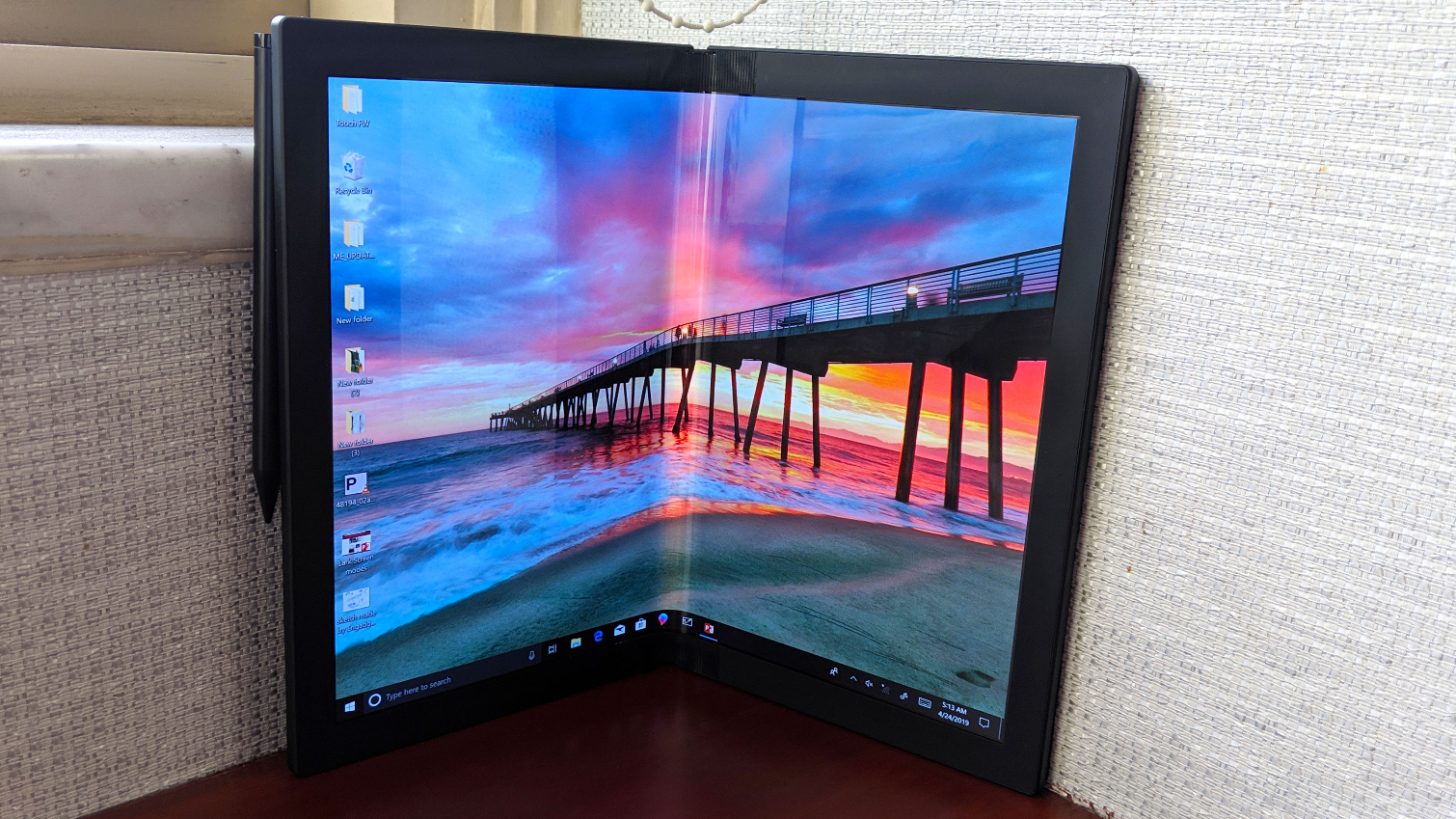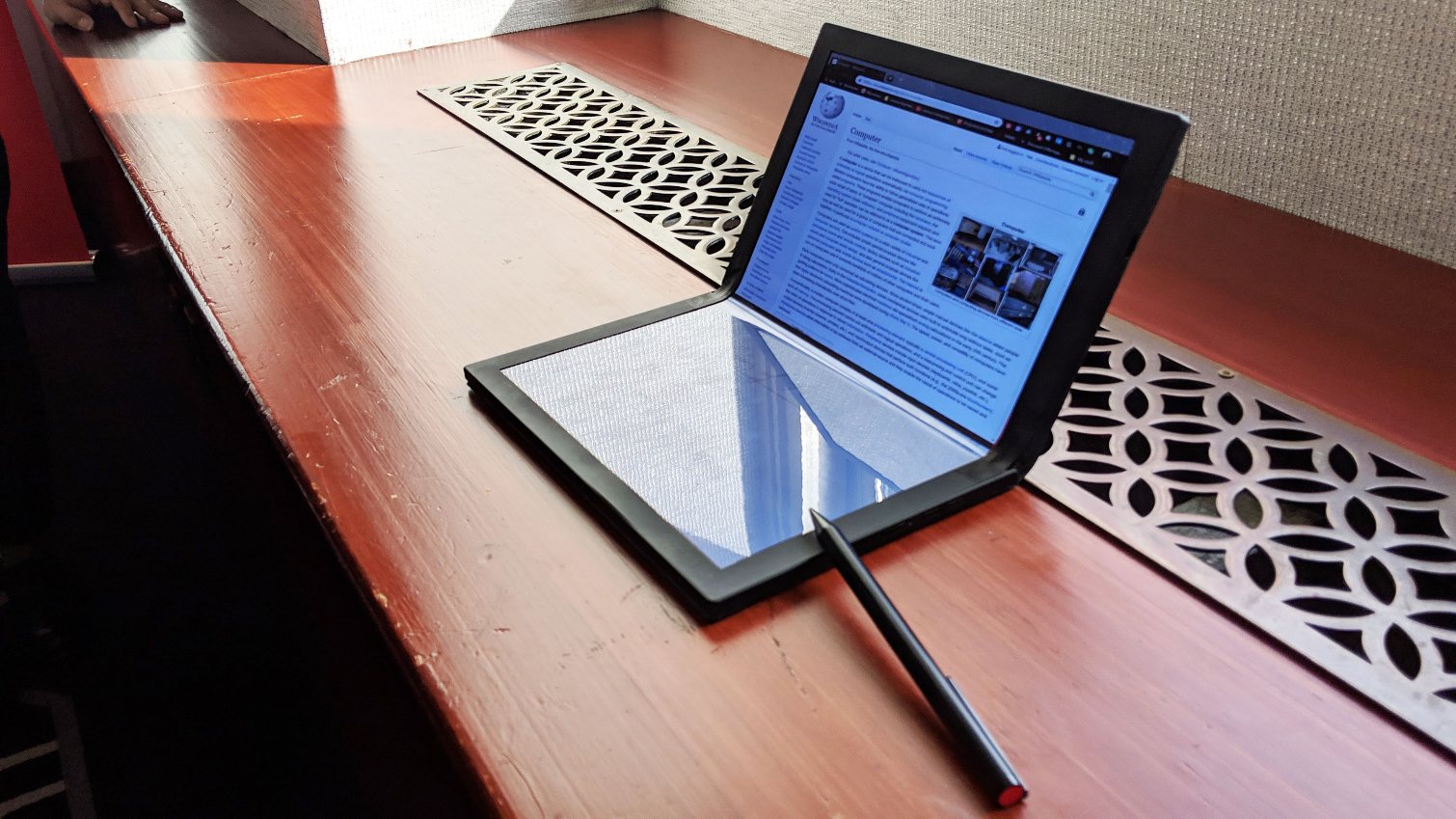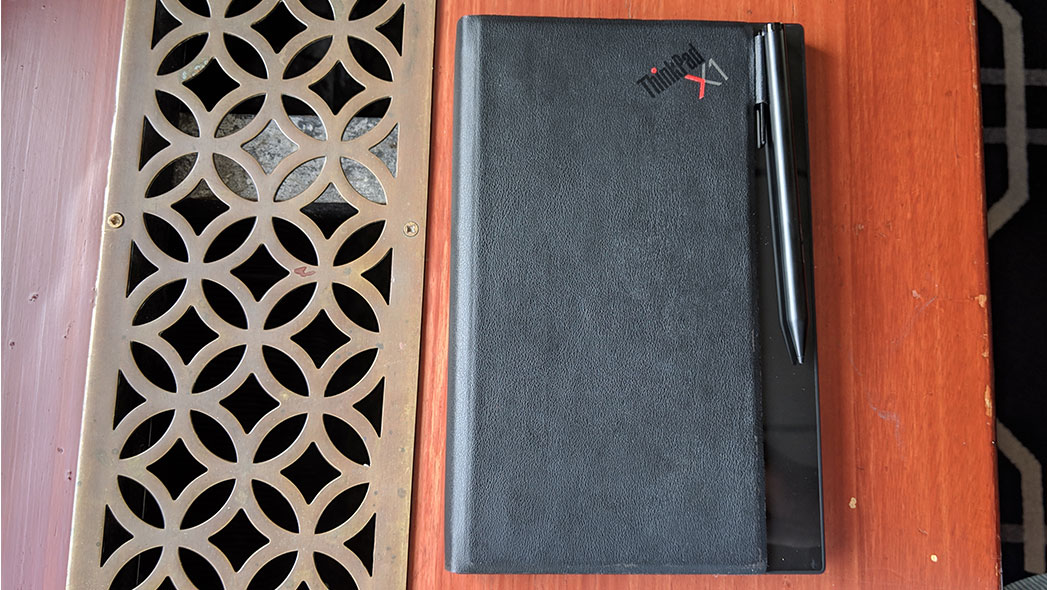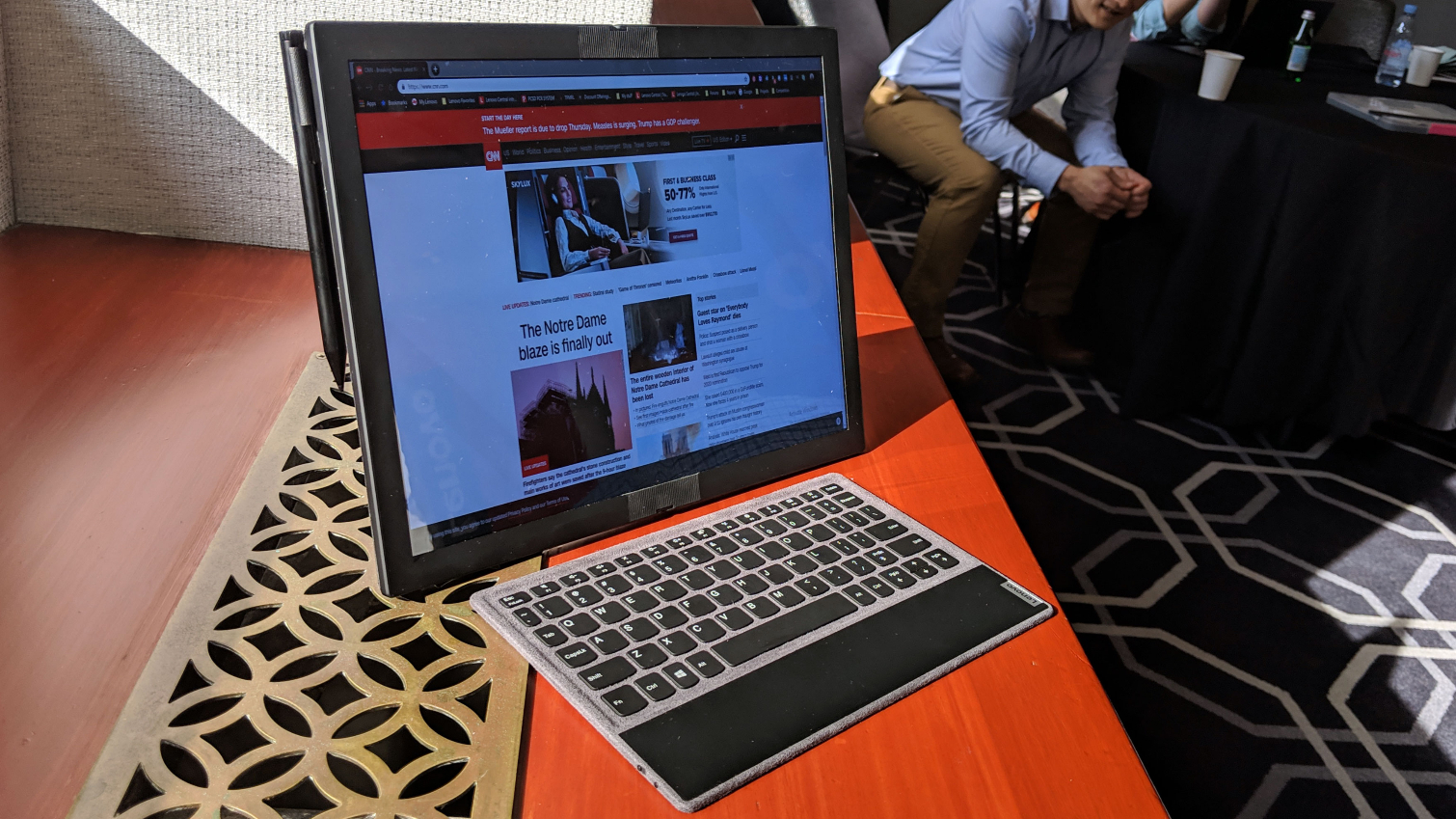Hands-On With Lenovo's First Foldable-Screen Laptop
Lenovo today announced the first PC with a foldable screen, a ThinkPad X1-branded device with no final name or price. This full-on laptop is scheduled for release sometime in 2020.
There’s very little in the way of specs just yet. Lenovo has revealed the device will be Windows-based and use some form of Intel technology for processing, though that’s under wraps (I would imagine that this is enabled by Lakefield, but that’s speculation). We do know that it has a 13.3-inch 2KOLED screen in a 4:3 ratio made by LG Display that can fold in half. Lenovo is also promising two USB Type-C ports, stereo speakers and an IR camera for Windows Hello, as well as a vague “all-day” battery life claim, though no numbers are available yet.
The company is suggesting that this will be a primary device to completely replace a laptop aimed primarily at executives and heavy travelers, as well as enthusiasts who want to try a new form factor. Lenovo said it is doubling the number of hinge cycles it uses on its laptops to test the foldable’s torque hinge.
In a hands-on with an early prototype, I was able to fold it in half, plant it on a table like a laptop and type on the touch screen. The hinge on the early device felt solid, and I opened and closed it several times without worrying about it breaking. I saw an option where one could use a Bluetooth keyboard and prop up the unfolded device for a more traditional experience.
You can also read from the device while holding it as if it were a book, and, if you want to draw, lay the unfolded device flat like a tablet and use its Wacom stylus.
The demo I saw was running Windows 10, though the company is being coy about what operating system will actually run on the final product. This did make typing without an external keyboard somewhat difficult, but there’s always time to improve the touchscreen keyboard before launch.
Lenovo has been developing the foldable for three years and is launching it after the February announcement of Samsung’s Galaxy Fold, a smartphone that faced a number of issues (including straight up not working) while reviewers tested it. But with a different display manufacturer in LG and one of the biggest names in portable business machines behind it, Lenovo is looking to foldable screens to reinvent the PC instead.
Get Tom's Hardware's best news and in-depth reviews, straight to your inbox.
The device seems promising (and, if the Galaxy Fold is any indication, will be very expensive). We’re looking forward to learning more in 2020.

Andrew E. Freedman is a senior editor at Tom's Hardware focusing on laptops, desktops and gaming. He also keeps up with the latest news. A lover of all things gaming and tech, his previous work has shown up in Tom's Guide, Laptop Mag, Kotaku, PCMag and Complex, among others. Follow him on Threads @FreedmanAE and BlueSky @andrewfreedman.net. You can send him tips on Signal: andrewfreedman.01
-
JQB45 I believe Intel on this one. We are closer to two years away when MicroLED comes out, OLED just isn't well suited to any PC form factor. Still I think I personally would stick with an X1 Carbon ultrabook for reliability or one of the nicer Yoga 2-n-1's if I needed a "flexible" machine. The technology right now is only suitable for prototypes and I don't think the technology will be ready by 02-2020 and when it is ready count on prices that make it unrealistic and suspect reliability.Reply -
vaughn2k Anything that is affected with bending stress, will surely fail for a short time.Reply
I remember the clamshell, and even the sliding phone has the same flexible problem, that hasn't been solved for decades.
Until this will be solved, I will stick to how screen are designed. -
Xajel Bending stress is the main issue here, specially for laptops which is supposed to last for years -compared to smartphones-, thought laptops will not be opened-closed as much as smartphones. But the main selling feature for me at least is the ability to flatten the laptop to have a larger screen when needed (with awkward aspect ratio, unless they went for 3:2 for single which means 4:3 for open).Reply -
Giroro This isn't a laptop, though, it's a tablet.Reply
There are a few reasons that people generally don't use a tablet as their primary business computer, but that's usually less about portability and more about how anybody who wants to type on a screen is already doing that on their phone.
Maybe there's potential if Lenovo put it in a prettier clamshell and targeted this at artists (and provided some solution for the lack of keyboard shortcuts?), but for serious business people .... I'm not seeing it. -
cryoburner Reply
Exactly. It's a Windows tablet, but a tablet nonetheless. Sure, you have the option of using it propped up with an external keyboard, but the same applies to other tablets as well. When in a folded format, that 13.3" 4:3 screen gets halved to effectively become a pair of 9.6" 2:3 screens, making it more like a massively overpriced netbook than a laptop. With an 8 inch wide (20 cm) touchscreen keyboard, I cant imagine the typing experience will be particularly good either.Giroro said:This isn't a laptop, though, it's a tablet.
I also question whether it would even be good for artists. Unless the seam where the screen is folded manages to lie perfectly flat with no flex, it will probably not be all that suitable as a graphics tablet. From what I saw with the previews of that Samsung foldable phone, that didn't appear to be the case with that device, as there was a visible dip where the screen would bend. And while OLED might be nice for color accuracy, it's also prone to burn-in, so things like toolbars will likely leave "shadows" of themselves on the screen over time. Artists would probably be better off with a more traditional Windows tablet or 2-in-1 with pen support.Giroro said:Maybe there's potential if Lenovo put it in a prettier clamshell and targeted this at artists (and provided some solution for the lack of keyboard shortcuts?), but for serious business people .... I'm not seeing it. -
cryoburner Reply
I seem to recall star wars holographic displays as being rather grainy, blurry, and monochrome. >_>jsmithepa said:Yawn... wake me up when they make a star wars holographic display. -
littleleo Maybe because I'm not in to notebooks or I'm just to dumb to get it, but I fail to see the need for a laptop with a screen that bends. Like a watch with a built in Phone (most people today don't know who Dick Track was). Or Ray Tracing on a VGA cards (Since it really only works on the 2080 Ti).Reply



